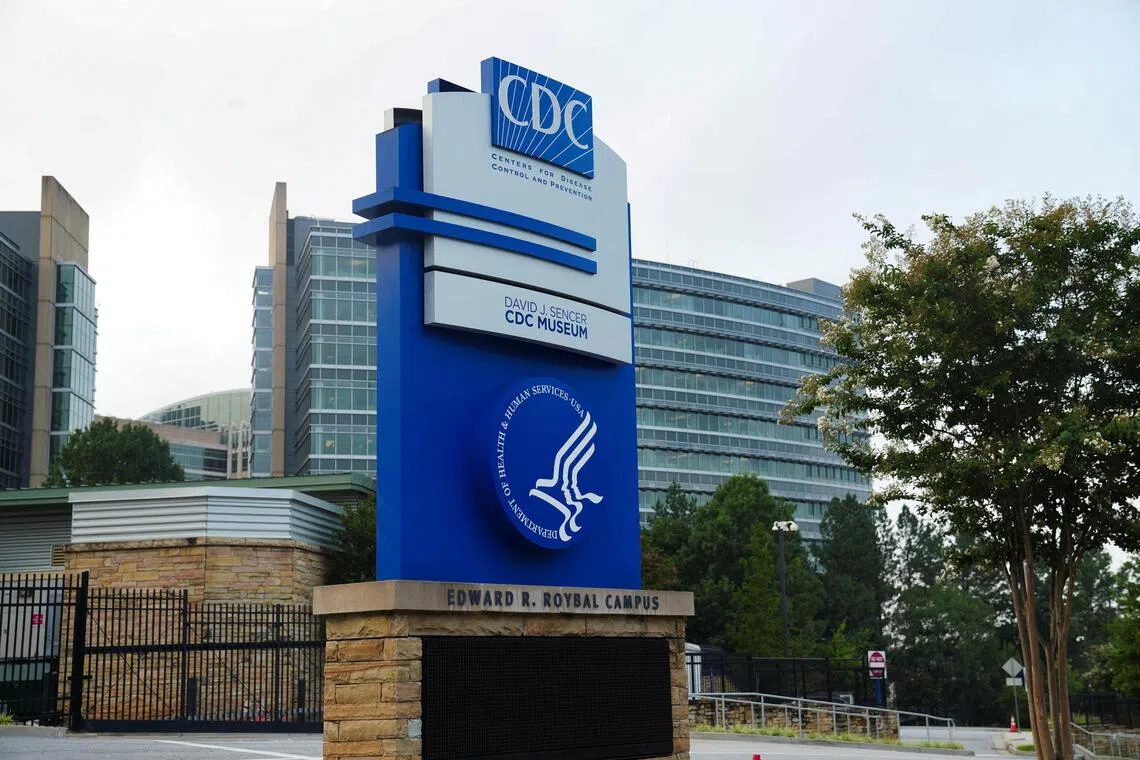US CDC adopts Kennedy’s anti-vaccine views on recast website
Sign up now: Get ST's newsletters delivered to your inbox

The CDC’s website previously said “studies have shown there is no link between receiving vaccines and developing autism spectrum disorder”.
PHOTO: REUTERS
NEW YORK - The US Centers for Disease Control and Prevention recast the vaccine safety section of its website on Nov 19 to align with the view of Health Secretary Robert F. Kennedy Jr. that childhood vaccines cause autism, countering decades of science showing them to be safe.
The US public health agency’s website on the night of Nov 19 was changed to say that “The claim ‘vaccines do not cause autism’ is not an evidence-based claim because studies have not ruled out the possibility that infant vaccines cause autism.”
It added that health authorities have “ignored” studies supporting the link between the two.
For decades, the CDC has backed the use of life-saving childhood vaccines both in the US and abroad.
The CDC’s website previously said “studies have shown there is no link between receiving vaccines and developing autism spectrum disorder.”
Since vaccine sceptic Mr Kennedy and US President Donald Trump have taken up their roles, the agency has begun to unravel that stance and has said it will reexamine data.
The World Health Organization and other health agencies around the world have said repeatedly that the evidence shows that vaccines do not cause autism, and referred back to earlier statements when asked about the CDC website change on Nov 20.
“A robust, extensive evidence base exists showing childhood vaccines do not cause autism,” the agency said in a statement in September.
“Large, high-quality studies from many countries have all reached the same conclusion. Original studies suggesting a link were flawed and have been discredited.”
The agency kept the header “Vaccines do not cause autism” on its web page, saying that it has not been removed due to an agreement with Senator Bill Cassidy, chairman of the US Senate’s Committee on Health, Education, Labour and Pensions.
In February, Mr Kennedy secured the endorsement of Mr Cassidy, a doctor, in part by pledging that he would not change the CDC’s website language on vaccines and autism.
Underneath the vaccines heading, the website now says that the CDC and other US health agencies have pushed their view that vaccines do not cause autism to prevent vaccine hesitancy.
Dr Demetre Daskalakis, who headed the CDC’s National Center for Immunisation and Respiratory Diseases before he resigned in August, called the website changes a public health emergency.
“The weaponisation of the voice of CDC is getting worse,” Dr Daskalakis wrote in a post on X. “CDC has been updated to cause chaos without scientific basis. DO NOT TRUST THIS AGENCY.”
The CDC’s former director Susan Monarez was fired by Mr Kennedy
Anti-vaccine group applauds changes
The anti-vaccine group Children’s Health Defence, which was previously led by Mr Kennedy, applauded the changes to the CDC’s website.
“The CDC is beginning to acknowledge the truth about this condition that affects millions, disavowing the bold, long-running lie that ‘vaccines do not cause autism,’“ the group said on X.
Mr Kennedy has linked vaccines to autism
Mr Trump has also linked autism to the taking of pain medication Tylenol
Autism is a neurological and developmental condition marked by disruptions in brain-signalling that cause people to behave, communicate, interact and learn in atypical ways.
The causes of autism are unclear.
No rigorous studies have found links between autism and vaccines, medications or components like thimerosal or formaldehyde. REUTERS


